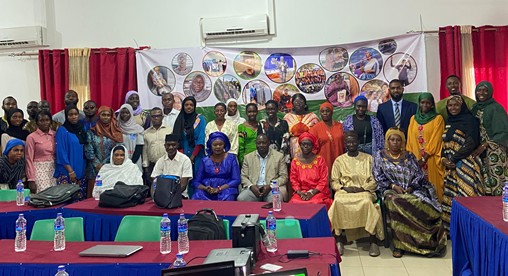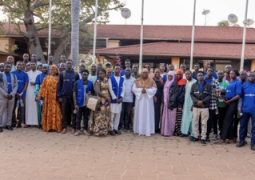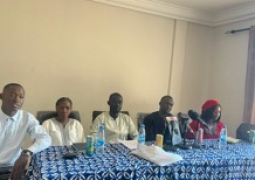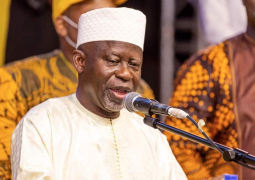
Speaking on behalf of the African Development Bank, Mr. Momodou Jallow, appealed for women to occupy at least 40% of leadership, technical, and entrepreneurial roles in the renewable energy sector, warning that without deliberate interventions these sectors risk replicating existing gender inequalities rather than dismantling them.
He outlined the bank’s three-pillar gender strategy, which includes, supporting women entrepreneurs with access to finance and markets; investing in women’s skills in STEM and renewable energy and ensuring that all AfDB-funded infrastructure projects are gender-responsive.
“Empowering women is not just a moral imperative, it is a strategic necessity,” Jalloh declared, adding that women’s participation remains limited to just 25% of the energy workforce mostly in administrative roles.
Jallow reminded participants the Gambia’s energy transition must be more than a technological shift.
”It must be a platform for equity, opportunity and inclusion. Without women at the center, we risk reinforcing the very inequalities we aim to fight.”
Foday Sanyang, from the Ministry of Petroleum, underscored government’s commitment to mainstreaming gender in all energy projects.
“Renewable energy generation is an attractive option to meet growing demand, but we must recognize the differentiated needs of men and women,” he said.
He added; “As custodians of the energy sector, we are committed to ensuring that this initiative succeeds, and that justice is done to the report we are validating today.”
DPS Principal at the Minister of Gender, Children and Social Welfare, Saikou JC Trawally, described the study as a “milestone in our country’s journey towards a sustainable and environmentally friendly energy future.”
He also reaffirmed government’s dedication to renewable energy as a tool for both development and climate resilience. “This study provides a comprehensive framework to enhance energy efficiency and create an enabling environment for investment,” he told participants.
He further urged stakeholders’, government, private sector, civil society and development partners to actively engage in shaping a “robust renewable energy framework that is inclusive, practical, and responsive to the Gambia’s unique needs.”
To ensure a truly inclusive energy transition, he equally urged Government of The Gambia and energy sector stakeholders to adopt a bold and measurable target: at least 40% of leadership, technical, and entrepreneurial roles in the renewable energy sector should be held by women.
”Achieving this requires coordinated, gender-responsive action across the entire value chain.”
All three speakers acknowledged that renewable energy offers The Gambia not only a chance to bridge its energy gap but also an opportunity to achieve equity.





